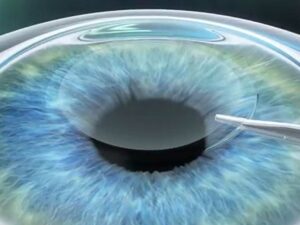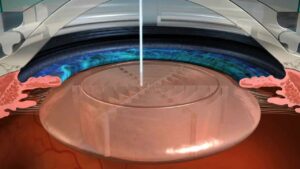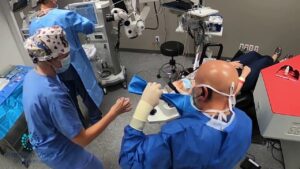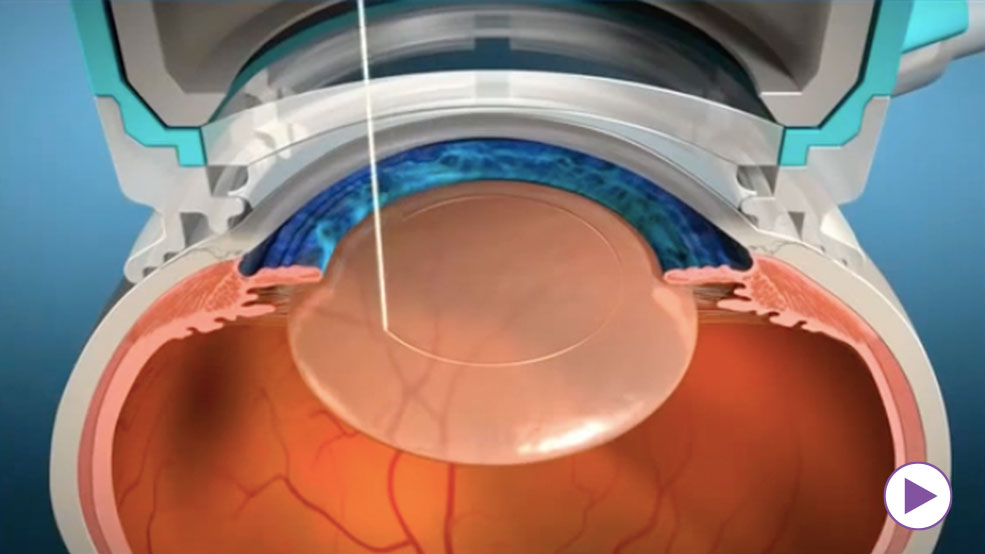If you’re like most people, you probably don’t think about your eyesight until there’s a problem. And by then, it’s often too late. Cataracts are the leading cause of vision loss in the United States, and they can usually be treated with surgery. But what if there was a better way to treat cataracts? What if we could use lasers to remove them? This is exactly what femtosecond laser cataract surgery aims to do. In this blog post, we will discuss the benefits of femtosecond laser cataract surgery and how it may revolutionize eye surgery.
What Is Femtosecond Laser Cataract Surgery?

Femtosecond Laser Cataract Surgery (FLACS) is a new type of eye surgery that uses a femtosecond laser to create incisions in the eye during cataract surgery. This type of surgery is very common in the world and is considered the gold standard for cataract surgery.
FLACS has many benefits over traditional cataract surgery. First, it is much more precise than traditional surgery. This means that there is less risk of complications and your vision will be better after surgery. Second, FLACS is much faster than traditional surgery. This means that you will spend less time in the hospital and recover from surgery more quickly.
If you are considering having cataract surgery, you should talk to your doctor about whether FLACS is right for you. Femtosecond laser cataract surgery is the future of eye surgery and it can help you maintain your vision for years to come.
How Does It Work?
The working of femtosecond laser cataract surgery is very similar to traditional cataract surgery. In both cases, an incision is made on the side of the cornea, and the cloudy lens is removed through this incision. However, in femtosecond laser surgery, the first step is to create this incision using a laser, rather than a blade. This has several advantages – it allows for a much more precise incision, and it also reduces trauma to the surrounding tissue.
The next step is to break up the cloudy lens into small pieces using ultrasound waves. This part of the procedure is also performed using a machine, which means that there is no need for manual manipulation of instruments inside the eye. Finally, the new lens is inserted through the incision and positioned in place.
Throughout the working of femtosecond laser cataract surgery, the patient is awake and alert, and they can go home the same day. Recovery times are shorter than with traditional surgery, and there is no need for stitches.
Before You have Femtosecond Laser Cataract Surgery
 Femtosecond laser cataract surgery is a very safe and effective procedure, but as with any surgery, there are some risks involved. Your surgeon will discuss these with you before the procedure, and they will also carry out a thorough examination of your eyes.
Femtosecond laser cataract surgery is a very safe and effective procedure, but as with any surgery, there are some risks involved. Your surgeon will discuss these with you before the procedure, and they will also carry out a thorough examination of your eyes.
It is important to note that femtosecond laser surgery is not suitable for everyone – for example, if you have certain medical conditions or if your cataract is particularly advanced. In these cases, traditional surgery may be the better option.
If you are considering femtosecond laser cataract surgery, it is important to consult with an experienced and reputable surgeon. They will be able to advise you on whether this type of surgery is right for you, and they will also be able to carry out the procedure to a high standard.
The other benefits of femtosecond laser surgery
In addition to the benefits mentioned above, femtosecond laser surgery also has several other advantages. For example, because the incisions are so precise, there is less risk of astigmatism after the surgery. This means that you will have a clearer vision and will not need to wear glasses or contact lenses.
Femtosecond laser surgery is also associated with a lower risk of complications such as inflammation and infection. This is because the surrounding tissue is less likely to be damaged during the procedure.
Finally, femtosecond laser surgery is becoming increasingly popular because it offers a more comfortable experience for patients. The procedure is very quick – usually taking around 20 minutes – and there is no need for needles or injections.
If you are considering having cataract surgery, femtosecond laser surgery is worth considering. It is a safe and effective procedure with several advantages, and it could help you to enjoy a clear vision for many years to come.
After You Have Femtosecond Laser Cataract Surgery
After you have a femtosecond laser cataract surgery, you will likely stay in the hospital for a few hours. You may have a patch over your eye and will be given eye drops to help with healing. It is important to keep your eye clean and free of infection during the healing process. Your doctor will give you specific instructions on how to care for your eye.
Most people who have femtosecond laser cataract surgery experience little to no pain after the procedure. You may have some discomfort or soreness around the area where the incisions were made. You may also feel like there is something in your eye, but this is normal and should go away within a few days.
It is important to avoid rubbing or putting pressure on your eye during the healing process. You should also avoid driving, operating machinery, or doing any other activities that could put a strain on your eye.
Your doctor will likely see you for a follow-up appointment within a week of your surgery. During this visit, they will check to make sure that your eye is healing properly and that there are no complications. If everything looks good, you should be able to return to your normal activities at this time.
Procedure of This Cataract Surgery

The procedure of femtosecond laser cataract surgery is very similar to traditional cataract surgery. First, the eye is numbed with eye drops, and a small incision is made in the side of the cornea. A tiny probe is then inserted into the eye and the femtosecond laser is used to create a small opening in the lens capsule. Next, a small instrument called an irrigating chopper is used to break up the cloudy lens material so it can be suctioned out of the eye. Finally, a new intraocular lens (IOL) is inserted into the empty lens capsule.
The main difference between femtosecond laser cataract surgery and traditional cataract surgery is that the femtocell laser is used to create the opening in the lens capsule. This allows for a more precise and controlled incision, which can result in fewer complications and a quicker recovery.
Femtosecond laser cataract surgery is still a relatively new procedure, but it has already shown promise as a safe and effective way to treat cataracts. If you are considering cataract surgery, be sure to ask your doctor if femtosecond laser surgery is an option for you.
Benefits of Femtosecond Laser Cataract Surgery
There are many benefits of femtosecond laser cataract surgery. One of the main benefits is that it is less invasive than traditional cataract surgery. This means that there is less risk of infection and complications. In addition, femtosecond laser surgery can be performed in an outpatient setting, which is more convenient for patients.
Another benefit of femtosecond laser cataract surgery is that it can provide better vision results. This is because the surgeon has more control over the placement of the incisions and can make them smaller and more precise. This leads to fewer side effects and a quicker recovery time.
Some other benefits of femtosecond laser cataract surgery include a shorter hospital stay, less need for pain medication, and no need for stitches. If you are considering having cataract surgery, femtosecond laser surgery may be the best option for you. Talk to your eye doctor to see if this type of surgery is right for you.
Limitations of Femtosecond Laser Cataract Surgery

There are some limitations of femtosecond laser cataract surgery. Some of these are that the surgery is not yet approved for people with certain types of cataracts. These are such as nuclear sclerotic cataracts. In addition, the surgery is not yet available in all parts of the world. Another potential limitation is that, like any surgical procedure, there are risks associated with femtosecond laser cataract surgery. These risks include infection, bleeding, and inflammation.
It should be noted that femtosecond laser cataract surgery is a relatively new procedure and that more research needs to be done to determine its long-term safety and effectiveness. However, the early results are promising. It is hoped that this type of surgery will become more widely available in the future.
Conclusion
Femtosecond laser cataract surgery is an exciting new development in the world of eye surgery. This cutting-edge technology offers several potential benefits for patients. This is including shorter procedure times, fewer complications, and improved visual outcomes. While more research is needed to confirm these advantages, femtosecond laser cataract surgery holds great promise for the future of eye care. If you are considering cataract surgery, be sure to ask your surgeon if this new technique is right for you.
Femtosecond laser cataract surgery may not be available at all facilities yet. But it is rapidly gaining popularity among both surgeons and patients. As this technology continues to evolve, even more people will likely benefit from it.
Cataract surgery is a safe and painless procedure. At EyeMantra we have a team of experienced eye surgeons, who will be happy to answer your questions on cataract surgery, cataract surgery cost, and cataract lens cost for different cataract surgery types- Phacoemulsification, MICS & Femto Laser Cataract. Call us at +91-9711116605 or email at [email protected] for inquiries.


